The Internet has become significant part of the lives of 60% of the human population in the last two decades.
It is inescapable, and often necessary when living your day-to-day life.
But it poses some unique dangers.
Whether you’re using the Internet for work or leisure, this guide details exactly what you need to know to stay safe in the Information Age.
Table of Contents
Staying Safe Online
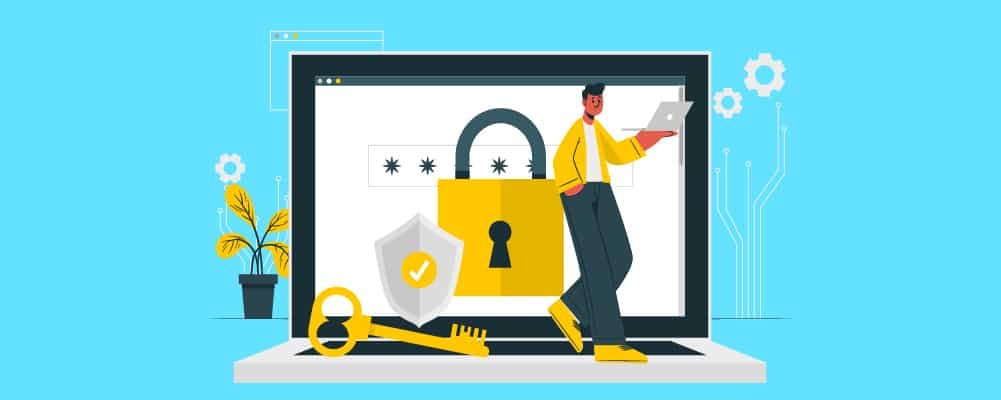
When the Internet was first established, only those who knew how to get their hands on expensive computer hardware and get online were able to participate.
This resulted in a highly-specialized and safe environment where people who knew what they were doing could communicate with one another.
This changed in the 1990s and ever since there have been generations of people raised with the Internet, but without the know-how to stay safe.
That’s why guides like this exist.
Here we go through the inherent risks that come with having an online presence, how you can spot a scam, and how to protect you and your family through the use of password management, social media etiquette, a robust firewall, and the use of antivirus software.
We also discuss which people are the most vulnerable online and how you can keep them safe, before giving our top five tips for staying safe.
What Are The Risks Of Being Online?
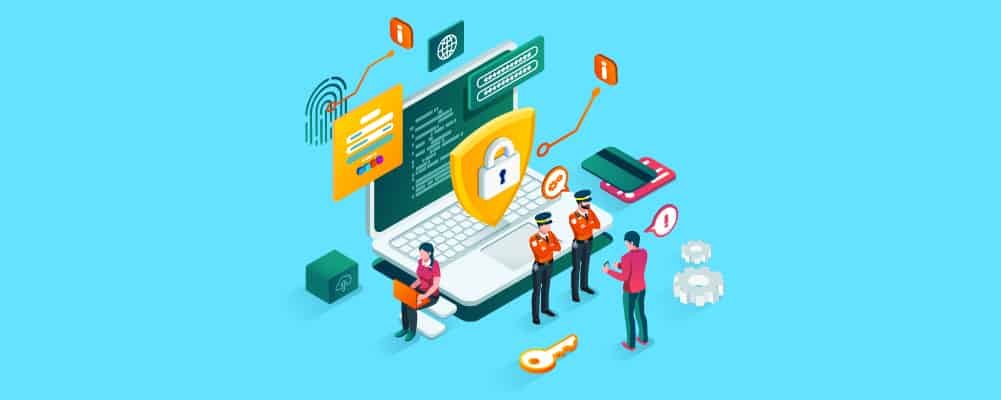
Given the vast size of the Internet and the anonymity that it brings, there are risks you can face when you’re online. In order to mitigate these risks, you need to know what they are so that you can avoid or mitigate them.
Here are a few of the common risks that anybody online can face:
- Cyberbullying
- Predatory Behavior
- Downloading Malware
- The Internet Remembers Everything
Cyberbullying and targeted harassment are global phenomena that primarily affects teens.
That isn’t to say that adults can’t and haven’t become victim to targeted harassment campaigns.
But for the most part, cyberbullying occurs when teenagers and young adults use the Internet to take out their angst and resolve personal drama, usually against other teens or young adults.
It’s the anonymity of the Internet that makes people think they can say whatever they want and get away with it. And usually, they do get away with it. Many attempts to police the Internet have proven fruitless.
Because of this, the surest way to stop cyberbullying is to protect yourself and your personal information.
The Internet has become a reflection of our society. While it has great aspects, there also exists predatory, often illegal, behavior.
The anonymity and the accessibility of the Internet presents an attractive opportunity for sexual predators, making it more convenient than ever to find people to groom.
Combine this with the slew of children and teens allowed online, unaware of these risks, and you can see the problem.
This is obviously policed much more than cyberbullying. This behavior often leads to the production of illegal material, and sometimes even attempts to meet in the real world.
Communicate with minors in your household about their Internet time so that you know what they’re doing and consider keeping the Internet out of reach for your children until they’re at an age of responsibility.
A lot of the information communicated via the Internet is done so through the uploading and downloading of files.
As you can imagine, there can be a lot of profit to be made if you can trick people into downloading a file that tracks activity or even harms the computers of those receiving it.
This is malware, short for malicious software, and it’s one of the biggest threats on the Internet.
There are many types of malware but they almost all aim to steal your data without your consent, usually to sell off or sometimes even lock your computer and demand a ransom.
Lastly, one of the most common dangers to the Internet is actually yourself. One of the first lessons you need to learn about the Internet is that you should expect anything you put onto it to remain there forever.
It’s rare that anything is truly deleted. This is an even bigger risk if you’re a child or teen online as you don’t know which information to keep offline, increasing the likelihood that you put something online that can be harmful and embarrassing to you for decades to come.
As the Internet becomes vital for many job roles, it’s not uncommon for employers to search interviewees online. If something unsavory comes up, it can cost you future career opportunities.
How To Spot A Scam
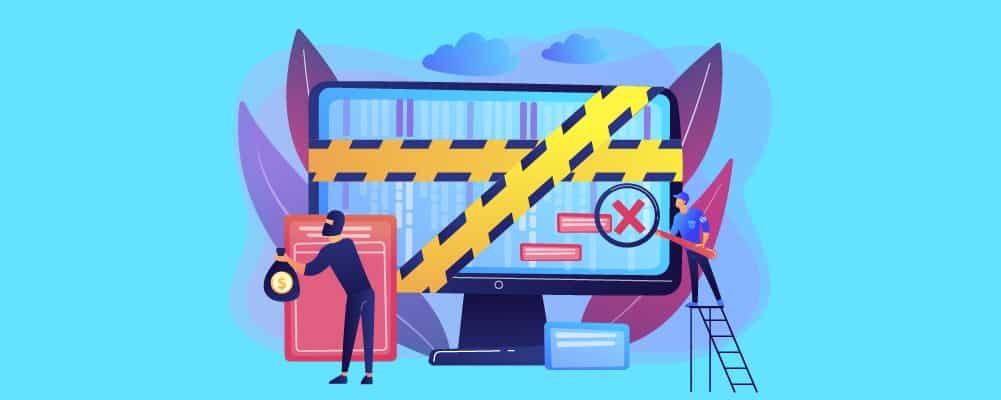
Now that we’ve covered some of the inherent risks to being online, there’s a particular profession that the Internet has made much easier.
Well, there are many, but we’re talking about the kind of profession that exists solely to deprive you of your finances under false pretenses. That’s right, the Internet is rife with scams.
Like with other examples of bad behavior, the proliferation of the Internet throughout normal society means that there’s a lot of clueless victims out there who will fall for someone’s scam.
Even if you are clued up, some scammers are so sophisticated that they can disguise their schemes in ways that might not be obvious.
There are five key questions you can ask yourself to identify if you’re dealing with a fraudster or not.
Is it too good to be true?
True to the old saying, if something sounds too good to be true, it most definitely is. Approach every interaction with a stranger with a healthy amount of skepticism to keep you and your information safe.
Are you talking to a stranger?
Speaking of, why are you communicating with a stranger? Every friend was a stranger at some point, so don’t discount making friends via the Internet because it is possible.
That said, why are you communicating with this person? If they contacted you out of the blue then this should be treated as a big red flag.
Are you being pressured?
If the person you’re talking to is applying social pressure to your conversation, they want something from you. The question is, what do they want?
If they’re not acting predatory, then chances are they’re a fraudster instead that wants you to commit to whatever scheme they’re running. Don’t let yourself get pressured into making decisions.
One of the benefits of the Internet is that you can walk away from the screen and take a break from the conversation. If you are suspicious, don’t give them any personal details. In fact, don’t give anybody personal details unless you know and trust them.
Are they authentic?
While it is an avenue available to you, not everybody can become a sleuth to find out if who they’re talking to is the real deal or not. However, there are two main things you can watch out for.
If the site or the person you’re communicating with has an address listed, make sure it’s a real address and not a vague, or even nonexistent, one. If they’re claiming to be an official entity, check their messages for spelling or grammar mistakes as this puts doubt on them being who they say they are.
Are they secretive?
There is often a certain level of discretion with online communications, especially when the participating parties are anonymous.
But fraudsters who make it known that you should keep their correspondence a secret are also a big red flag. There’s often a reason they want you to remain silent and that’s usually because they have sinister intentions and don’t want you consulting others for advice.
How To Protect Yourself And Your Family Online
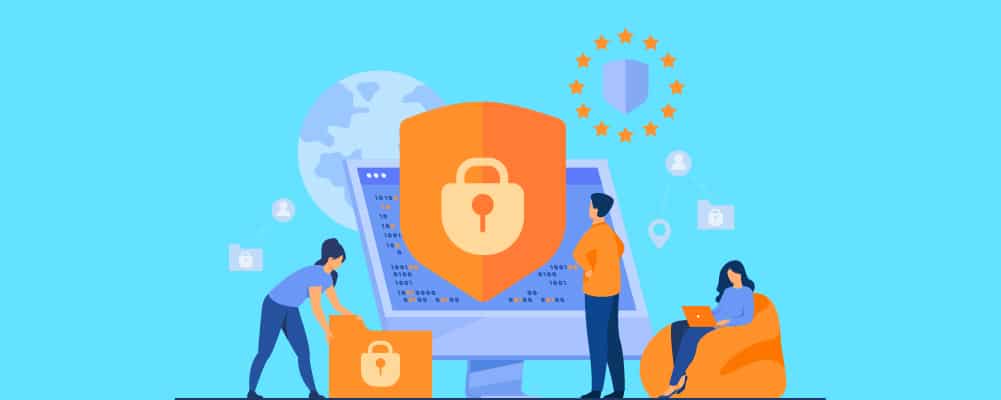
Knowing the dangers that you and your family can face online is only half the battle, so it’s time that we get into what you can do to have a safe and fruitful relationship with the Internet.
We’ve separated the below information into seven subheadings so, if you’re seeking specific information, check them out to get advice on certain issues below.
Use Strong Passwords
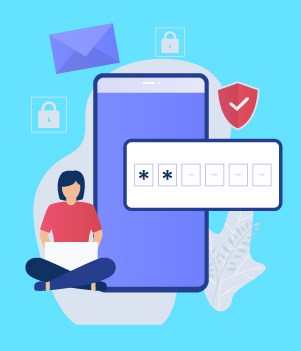
If your Internet profiles are a locked door or a sealed treasure chest, then your passwords are the keys.
Many fraudsters and other manipulative individuals will want to access your accounts by finding out what your password is.
Password cracking software exists, of course, but this is time-consuming and so hacking is still primarily done through what is called social hacking.
This is using available information and social interactions to deduce what your password is or otherwise impersonate you to some nefarious end.
So, how do you make sure your password is ironclad? There are many places where you can find in-depth guides from recognizable names in the online world, but here we’ve condensed a lot of conventional wisdom that you should consider when making your passwords.
Many websites will demand that your password include both letters and numbers, and sometimes even a capital letter too. This is because the more varied your password is, the harder it will be for a potential hacker to guess what the password is.
Yes, this means that your dog’s name or the title of your favorite movie is a bad password, as is a number sequence based on your date of birth.
Your password needs to be robust and unable to be guessed by others yet memorable to you. We’d suggest that you keep it unique to you, between ten to fifteen characters long, with a mix of letters and numbers.
If you’re confident you can remember it, you can also add in a special character and mix upper and lower case lettering. Examples of a special character are the @ sign, question marks, and exclamation points.
Having one great password that you know is great but, unfortunately, we can’t recommend that you use the same code for all of your accounts.
Imagine if one of your passwords gets cracked, it means that all of your accounts are now in danger, whereas if your passwords are different then only one account has been compromised.
It’s harder to remember, of course, but the added security is worth the extra effort to memorize multiple passwords.
A handy way to get longer passwords is to use a longer quote or phrase from some media that you enjoy, and maybe you can even abbreviate it so that it becomes a mnemonic device.
If the quote has the words “to” or “for” in it then you can also include numbers to substitute for them, creating an even stronger password.
Part of having a strong password is also having a failsafe for if somebody does get into it without your permission.
The single best way to shore up your password defenses is enabling two-factor authentication, or even multi-factor authentication if you want more steps involved.
Two-factor authentication is where a different, often randomly generated code is required to access the account after the right password is entered.
If you’re using a laptop, for instance, the code will often be sent to your mobile phone so that you, and only you, get to see this second code.
It’s more effort on your part when logging in, but the code prompt itself can serve as a warning if somebody is trying to get into your account.
Use A Password Manager To Store Passwords
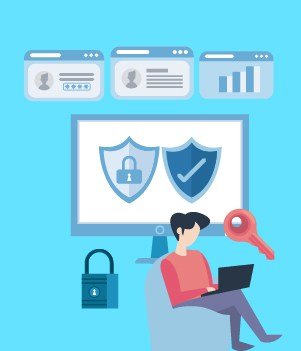
If you like what you’ve read above but you know you don’t have the memory for it, there is a potential solution you can try.
That would be a password manager, a website, or a program that will store or even generate randomized, unique passwords for every account that you use.
This keeps them neat since they’re all in one place, that place being locked with another password, called the master password, which you need to remember to gain access to all of the others.
This means that you only need to memorize one password – problem solved!
Examples of established, reliable password managers include Lastpass, 1Password, and Dashlane.
Premium password managers will have more features than the free ones, as you might expect, though Lastpass, in particular, gives you a lot of features that you don’t have to pay for.
Many search engines, including Google, have a password synchronization feature that allows you to “save” passwords for certain sites.
This can be handy if used sparingly and for accounts that you wouldn’t deem vital to protecting your online presence because, if you ever did get hacked, the hacker can use the same saved passwords to access your accounts easier.
This means you shouldn’t save passwords for accounts that can make purchases or have personal identifying information about you within them.
Log Out Of Sites After Use
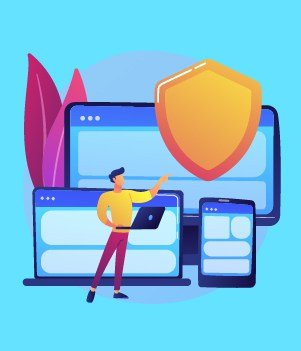
Speaking of the accounts that you keep on websites, try not to stay logged into them for prolonged periods of time.
If you’re not going to use an account for the foreseeable future, log out when you’re done with it.
Websites all over the web, both legitimate and illegitimate ones, use cookies that tie themselves to your online activity.
Most of these are used for data collection purposes, usually for marketing, so you can see the advertisements that would appeal to you the most.
Some of these cookies will contain your identity, however, which allows hackers to steal it and use the information contained within to crack your account.
Once again, you should especially log out of services that are tied to your credit card details and are capable of making purchases in your name, as these can be a payday to any opportunistic fraudster online.
Your email and social media accounts are usually fine to keep logged into if you really need to. Needless to say, this only applies if you’re operating a home computer on your own Internet service.
If you’re using the library’s computer, you want to log out of every account before leaving the computer for anybody else to use.
Keep Social Media Profiles Private
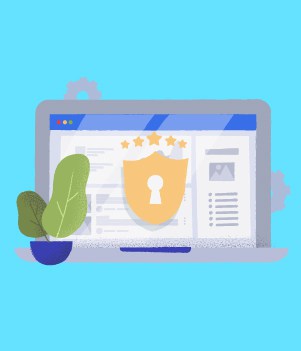
For the purposes of online safety, social media accounts work best when they’re social to an extent.
This means that there should be some expectation of privacy to your social media account so that it’s not open to anybody in the world to view it.
We’ll reiterate, the Internet remembers more or less everything that people throw at it, even when they later delete it from the surface.
By limiting the reach of your social media account, you can at least perform damage control should unwanted information come out online about you or your loved ones.
So, how do you make your social media profiles private? This has been widely reported in the last few years as Internet safety awareness has become a hot-button issue.
Facebook, for example, has faced scrutiny over privacy concerns and how their privacy settings are, ironically, hidden and hard to access.
Of course, shutting your entire account away from the world defeats the entire point of it, so we’d recommend making it so the profile is visible to only you and your friends, and maybe friends of theirs as long as you don’t accept unsolicited requests from people you don’t know exist.
Sticking with Facebook as an example, many popular social media sites allow you to curate which information gets displayed about you.
For example, if a friend has tagged you in a post that you don’t want to be part of, you can turn on tag reviewing in Facebook’s privacy settings. This allows you to see what it is before it hits your timeline, where you can either delete it or allow it through.
Install A Firewall
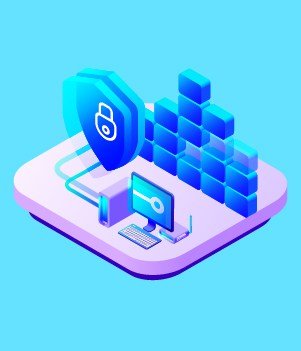
Firewalls are network security programs that monitor the traffic that comes into and out of your household’s Internet service.
By blocking potential threats at the gate, a firewall ensures that nothing harmful makes its way to your computer where your sensitive accounts and files are stored.
They’re quite fundamental to computers nowadays, with Operating Systems like Windows coming with their own rudimentary versions.
But many people are not even aweare if they have one running and often make it very easy for hackers to get access to their systems without even realizing it.
Read “How Do I Know If My Wi-Fi Is Secure?” to learn how to check whether your protection needs to be better. The first step would be to activate the basic Windows firewall.
To do so, do the following:
- Access the Control Panel
- Find Windows Defender Firewall, which should be one of the last options if they’re all listed alphabetically.
- Turn it on and decide which kinds of programs are exempt from firewall checks.
And that’s it, it’s that simple. The firewalls of public locations often need to be more robust due to the additional traffic and the fact that each computer is used by multiple individuals throughout the day, some of which might have bad intentions.
You can get more advanced firewalls but these are usually part of other programs, which brings us to our next protection tip…
Use An Antivirus Extension
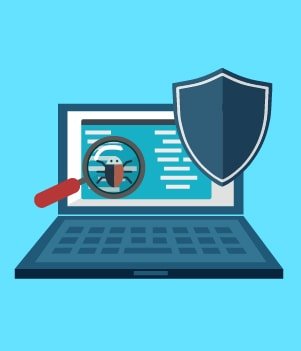
Along with keeping viruses and other malware out, third-party antivirus software also bolsters your firewall, assuming that it’s a feature that’s included with the package you’re using.
Finding a good antivirus software can be difficult but, if you’re on a budget, AVG or Avast should be fine for casual home use.
You’ll get prompted to get additional features to protect your computer even more but freemium antivirus software performs just fine even if you only use their free features.
You might also want to experiment with different programs as some can cause your system to have a slower performance or frequently block safe sites that you may want to visit.
No matter which software you choose, and whether it’s free or paid, you should always make sure that the antivirus software is up to date.
Putting off a minor software update for apps you don’t use much is one thing but your antivirus should be updated ASAP. There’s a reason they’re being updated, after all, and usually, older versions are more susceptible to cyberattacks.
Who Is Most At Risk?
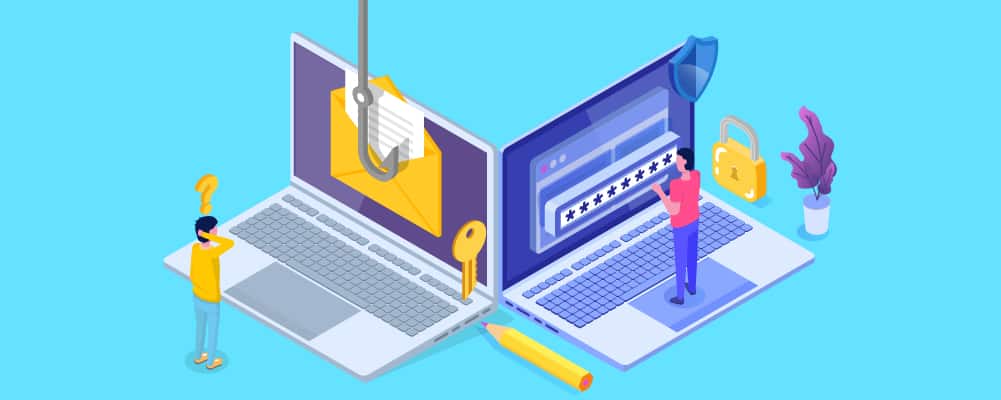
So now you have an idea of how you can protect yourself and your family as you all journey the Internet, but who needs the most protection?
The unsavory elements of the online world thrive thanks to those who have a poor understanding of it, so you should keep an eye on the young and the elderly when they’re using modern technology.
Elderly
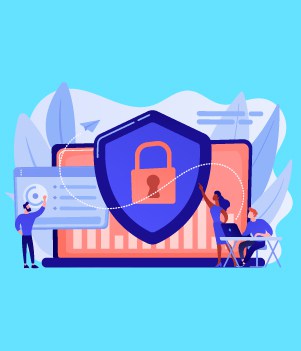
The elderly are especially susceptible because the technology on display when it comes to the online world is simply ahead of them.
Even assuming that the elderly person in question suffers from no cognitive impairments that can naturally come with age, older people are more susceptible to scams, which are nowadays primarily facilitated through the Internet.
Think about it, the rate at which technology has progressed over the last one hundred years has been unprecedented.
There are elderly people alive right now who remember the first motor vehicles, especially if they were raised in rural communities where cars weren’t immediately financially viable.
Many don’t have any interest in the Internet, of course, but for those who do, it would be irresponsible and unreasonable to expect the elderly to identify and outwit an Internet scammer who was raised with the whole online world at their fingertips.
This combination of poor online knowledge and the fact that wealth is overwhelmingly held by the elderly more than the young presents an irresistible mark for scammers, who think they can get more cash or less effort if they target the right people.
Unfortunately, this is true, and many elderly people do get successfully defrauded.
So how does this happen? A lot of the tactics used are the same as any scam since they’re more likely to work on the elderly over Internet-savvy teens and adults.
They often take the form of a pen pal or the impersonation of a friend who, after building some rapport, will attempt to ask for money.
Older people tend to report higher rates of loneliness too, making them more willing to engage in contact with complete strangers online.
A particularly common fraud type that older men fall for is a younger female trying to build an online relationship, through which “she” asks for money from the older man.
Of course, these scams don’t need to be as targeted or sophisticated. Your elderly loved one getting scammed could be as simple as them opening a suspicious-looking email without considering, or knowing, that it could be a fraud attempt.
The word that is often used to describe older people’s relationship with the Internet is naïve. Maybe that is the case, but you should consider that the rate of technological development isn’t slowing down.
When we are all their age, it’s very likely we’ll be in the same situation as they are, if not even worse.
It’s likely that we’ll have a poor understanding of the next vast and sophisticated technology that comes along and dwarfs our Internet in both size and complexity.
Children
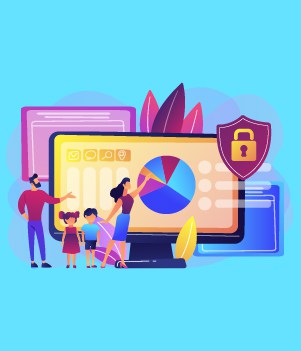
Online fraudsters usually aren’t out for your kids’ lunch money. Unfortunately, the primary danger to children and other young people online aren’t scams.
Where money is concerned, you should make sure that your child’s online activity can be monitored and that they stay away from sites that may prompt them to input financial information.
If saved onto your search engine, card details can be used by kids on both desktop and mobile games to accidentally spend your hard-earned cash.
This is more of an accident than targeted fraud, however.
Young people are instead at risk of being exploited and victimized by the more criminal elements of the online world. If your child must be online, which isn’t a requirement nowadays by any means, then you need to monitor their online activity.
There is no excuse to let your child wander the Internet freely, the least you can do is make sure the computer they use is in a place where you can see the screen and have frequent conversations about their online activity.
There are even dedicated programs that make this much easier, such as:
- Qustodio Parental Control
- Kaspersky Safe Kids
- Symantec Norton Family Premier
You should also set up parental control on your search engine of choice so that your child’s online activity is protected. It’s free, so there’s no reason you shouldn’t.
By filtering out harmful content, your child won’t be able to access sites that contain violence or pornographic material.
We’d recommend software if your child is an Internet-savvy teen, however, as they could use anonymized browsing options like VPNs or TOR to escape these restrictions.
Whichever you go for, if your child is using the standard Internet then they’ll have search logs that you can have a glance through too, to make sure they haven’t visited or searched for anything suspect.
Restricting online time is a handy way to avoid Internet exposure and, in so doing, the dangers that come with it.
Qustodio in particular lets you restrict online time on both desktop and mobile devices, though it’s a premium program that demands payment.
These restrictions can also help them be more productive if other parts of their life, like schoolwork, are being eaten up by time wasted online. It’s also less obtrusive. Your child, especially if they’re a teen, still has to have some privacy, after all.
As for mobile solutions, keep your children off of apps like Snapchat and Signal where messages are either frequently deleted or operate off of heavily encrypted data, which may hamper any further investigation if any illegal messaging should be directed at your child.
Ask frequently if they’re talking to anybody new through their social media if they’re allowed to have one. You might even want to install an app to track your child’s phone activity.
As we said above, children are going to be raised with the Internet so they’ll usually be well-equipped to avoid fraud in the future.
Instead, you should pay attention to how your child uses the Internet, what material they consume, and who they may be communicating with if anyone.
Our Top 5 Tips For Staying Safe Online
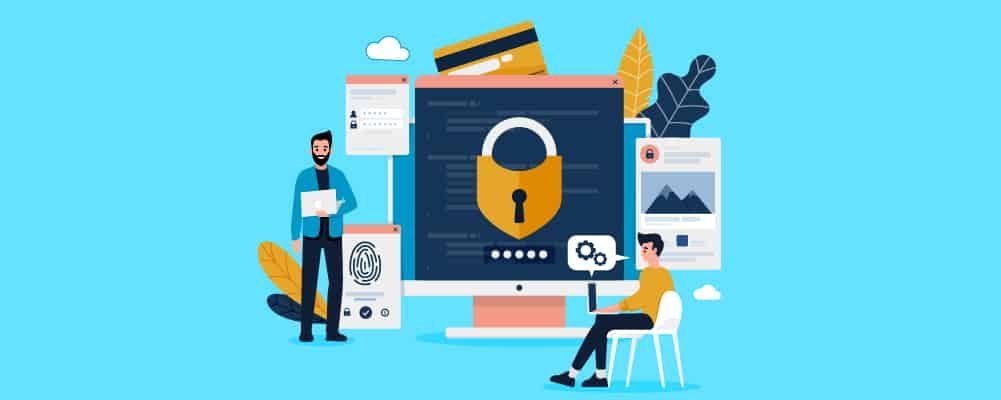
With all of the above in mind, let’s wind down with our top five tips that condense everything we’ve learned so far into bitesize segments alongside other pearls of wisdom that we’ve learned over the years.
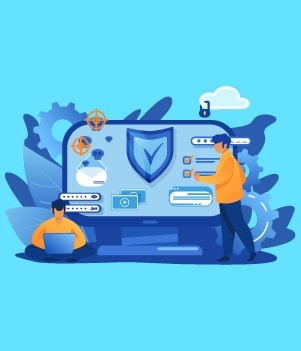
“Don’t share personal information” could probably be a four-word summary of this entire guide.
The more information you put out there, onto the Internet, the more ammunition potential hackers and fraudsters have to target you and your family.
So, what should you keep offline?
- Your home address.
- Your work addresses.
- Home and mobile phone numbers.
- Date of births of family members.
- The schools your children go to.
Some of these, like the date of birth, may appear on a social media account. That’s fine as long as the account is properly curated and has privacy settings, so only friends that already know this information can see most of the info that’s available on your account.
Also, when it comes to keeping schools secret, remember that photographs your child posts online in a school uniform can be enough for a potential hacker or predator to narrow down their search.
As for what you and your family personally post, operate by the rule of “don’t put anything online that you wouldn’t want parents/guardians and future employers looking at.”
Anybody can save what you put online, so don’t fool yourself into thinking you can control any information you put out there once it is posted.
Keep Your Device Secure
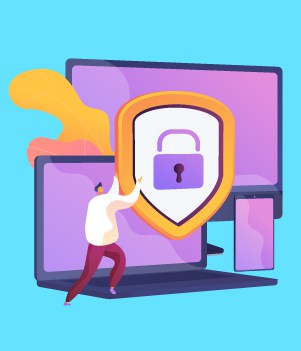
Make sure you keep your device secure, both physically and digitally.
If you mainly access the Internet via smartphone, which is becoming increasingly common, then don’t lose it and make sure you don’t leave it unlocked and unattended with anybody you don’t trust or can’t hold accountable.
If you use a desktop, keep separate password-protected profiles if multiple people use it.
If it’s in a library, get out of every account before leaving it for somebody else.
On the digital front, download updates as soon as they become available to make sure you have the latest in encryption. Other downloads should be scrutinized.
Do you know what you’re downloading and that it’s from a source that can be trusted? The same goes for where you input information, especially financial information, which you should only do when you have established your home Wi-Fi network.
Using a VPN can help keep your connection even more secure and harder to trace.
Never Give Out Passwords
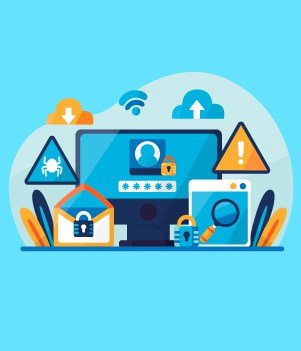
This one’s simple.
Never give out your password, even to those you trust or certain members of your family.
There’ll be circumstances where a password is shared, sure, but if the account has any sensitive information about yourself or your banking information, it’s best to keep that protected.
Likewise, if you use a password manager, make sure that nobody else has access to it.
If multiple people use the manager, have distinct profiles for storing your passwords so that they can’t access yours by mistake.
Passwords should be strong and hard to guess too, even for those who know you well. This is best done through a combination of upper and lower case lettering, numbers, and special characters too if they’re able to be used.
Cover Your Webcam
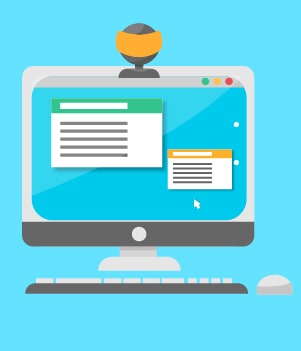
We haven’t mentioned this yet but this is a simple and effective solution to a problem you might not have even known about.
Webcams, like any wireless camera, can be hacked.
Yes, this means that individuals, for whatever nefarious purpose, can hack your camera and see you and your loved ones through them.
A simple solution to this is to cut out some paper, maybe from an old envelope since that’s pretty thick, and tape it over the camera.
You can also buy webcam covers that slide out for when you do want to use the camera.
If you use an external webcam for your desktop computer, take no chances by turning it off, unplugging it, and turning it to face the wall.
Watch Out For Phishing Or Scams
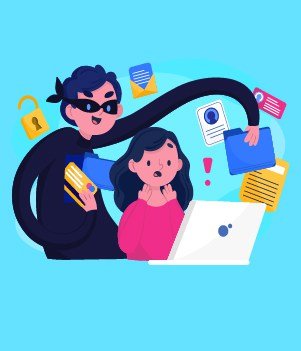 Last but not least, make sure you’re aware of the scams and frauds that you might find in your online travels.
Last but not least, make sure you’re aware of the scams and frauds that you might find in your online travels.
The surest way to protect against scams is knowing which ones exist and are prevalent at the moment and, if you’re unsure, searching the circumstances of any situations you’re unsure of.
Phishing is a popular one that we’ve only glanced over, where fraudsters find a way to trick you into giving them your identifying information, if not your password outright.
This can be done through fraudulent websites, fake contacts online, or through emails that you really shouldn’t open.
With those emails, check to see if they’re genuine. Don’t click on them, instead check to see if you recognize them. If it’s related to a product or service you know you’ve never used, delete it and add the sender to the spam bin.
If they’re claiming to be part of a company that you already receive official correspondence from, compare the title and other identifiable information with that of the company, but remember to never click on the suspect email as this can be all they need to access information.
Treat text messages the same if they can’t immediately be identified as being from a friend or some other source that you have solicited.
Online Safety: Summary
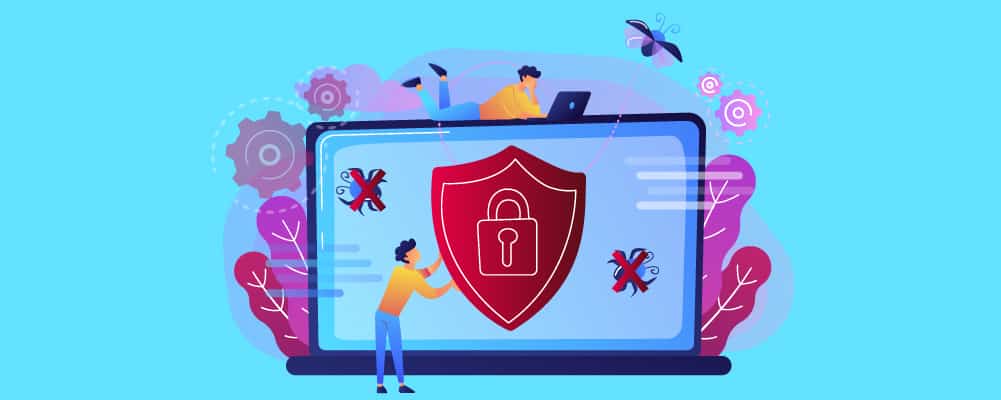
With that, we arrive at the end of our complete guide for staying safe online, where both you and your family are concerned.
The technology and methods used to scam or victimize people through the Internet are always evolving, so make sure that you regularly check for the latest emerging scams if you’re concerned.
Also, make sure you have honest conversations with your family about their Internet usage so that they too can learn and be safe from potential threats. This is especially important if those relatives are young or old.
On the Internet, you have a lot of control over where your information goes, so limiting that information spread is often the key to minimizing the risks that come with an online presence.
Always think before you put something out there and treat everybody you don’t know with a healthy dose of skepticism.
When you do this, you and your family can reap all the benefits of being online without having to worry so much about what can go wrong. And nothing is more important than the security of your home.
- A Guide To Protecting the Elderly Online - September 14, 2021
- Imou Security Camera Review: For Complete Peace of Mind - August 5, 2021
- Guide To Anonymous Browsing - July 15, 2021
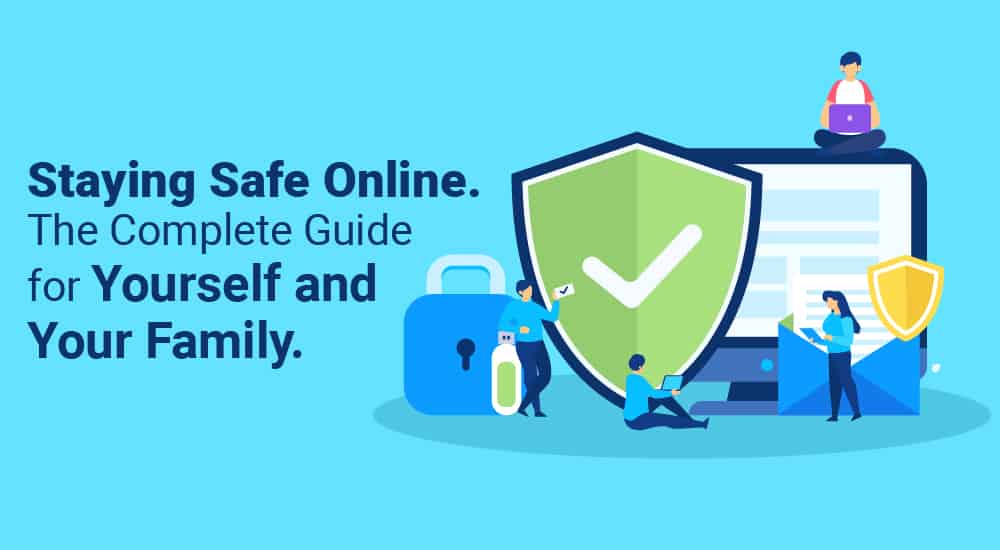
Great guide on staying safe online! The tips are clear and practical, especially the advice on strong passwords and recognizing phishing scams. Thanks for sharing such useful information to keep our digital lives secure!